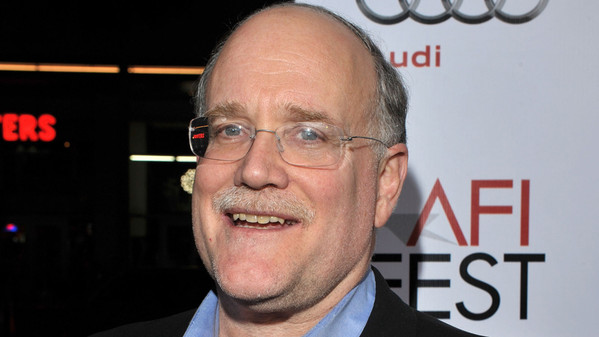Ted Field
Настоящее имя: Ted Field
Об исполнителе:
Born on June 1, 1953 in Grand Boulevard on the south side of Chicago, Illinois, Frederick "Ted" Field is a former film producer, music executive and activist. He is also a heir to the Marshall Field family business. His mother, Katherine Fanning, was a former newspaper publisher. Since graduating from Kenwood High School in 1972, Field executive-produced the serial daytime soap opera, The Young & The Restless, from late 1972 to 1979. In 1972, Field would setup Interscope for the first time; the first outing with the company name was Interscope Racing. In 1980, he assisted the construction of the now-destructed Interscope Chassis for the Indianapolis 500. After several financial disputes with other sponsors and car test accidents, Interscope Racing filed for bankruptcy and ended operations. He later returned to media production, thus creating Interscope Communications in 1983 as a joint venture between Field and PolyGram. He relocated to San Diego, California to focus on his film production career. In 1988, Field was introduced to Jimmy Iovine, who thought of creating a record label on his own after struggling with his tenure as a music producer. Tom Whalley, a friend of Field's, suggested that the two create a label together, and thus in 1989, Field and Iovine co-founded Interscope Records. Throughout the 1990s, under Atlantic Records, the label garnered success with 4 Non Blondes, No Doubt, Geraldo, Tupac Shakur, Down South, Nine Inch Nails and many others. In 1992, the label entered a distribution partnership with Death Row Records, signing Dr. Dre and Snoop Dogg to the label. Death Row/Interscope went on to sell over 14 million records worldwide during the 1992-93 period. In 1995, Field produced his final film under the Interscope Communications banner, an adaptation of the 1981 children's book, Jumanji; a co-production with Sony's TriStar Pictures, which became a box-office hit. That same year, regarding political controversy surrounding gangsta rap, Time Warner (known today as WarnerMedia; former parent company of Warner Music Group and Atlantic Records) sold their ownership of Interscope for $500 million to its co-founders, who later sold their share in the company to the Music Corporation of America. In 1996, following MCA's acquisition of Interscope, MCA Music Entertainment would later be rebranded as the Universal Music Group; Interscope resurrected with five number-one Billboard 200 albums by Tupac (All Eyez on Me and Makaveli: The Don Killuminati - The 7 Day Theory), Snoop Dogg (Tha Doggfather), Bush (Razorblade Suitcase) and No Doubt (Tragic Kingdom), as well as a number-one hit on the Hot 100 from Blackstreet ("No Diggity"). In 1997, following Suge Knight's incarceration on a probation violation, Ted Field forced Interscope to revoke their distribution of Death Row, thus ending the label's relationship. In 1998, Field's company, Interscope Communications, was folded by Seagram, a Canadian-French whiskey distillary which owned PolyGram. At the same time, Field, Iovine and Dr. Dre (who had just created Aftermath Entertainment) would altogether sign a rapper (whose tape first made its way to Field) who would later be known today as Eminem. Since then, Eminem became the highest-selling rapper on Interscope. In 1999, after Seagram merged PolyGram and its associated labels with that of Universal and its associated companies, the two companies would combine together as Universal Pictures; the music division of PolyGram was absorbed into UMG. During this merger, Field and Iovine's stake in Interscope would be combined with two labels, Geffen Records and PolyGram's A&M Records, creating the label unit Interscope Geffen A&M. In February 2001, Field resigned from his position as chairman and co-CEO of Interscope Records. During this period, the label had already scored platinum-selling hits by artists City High, U2, Mya, Enrique Iglesias, D12, Eve (2) and many more. Shortly after his departure, Field created ARTISTdirect Records with ARTISTdirect co-founder Marc Geiger, signing a distribution venture with RCA/BMG. Unfortunately, it went into liquidation and folded in 2003. In 2007, Ted Field returned to his movie production roots, buying back the Interscope Communications name from Universal Pictures (which at the time was owned by NBCUniversal) and shortly renaming it Radar Pictures. In 2017, Field and Radar Pictures stood trial for fraud, theft by deception and money laundering. Factors included a couple of lawsuits from second hand producers who claimed fraudulent earnings, a $500,000 loan debt over the remake of the 1989 film, Kickboxer, as well as Radar's bankruptcy filing in 2009 which was denied by a district court judge and losing lump sums to Filmula and Sony Pictures for creative involvement in the 2017 film, Jumanji: Welcome to the Jungle. The case also revealed that since 2008, he was $100 million in debt. Recently, in December 2019, Field became executive producer of Jumanji: The Next Level.




